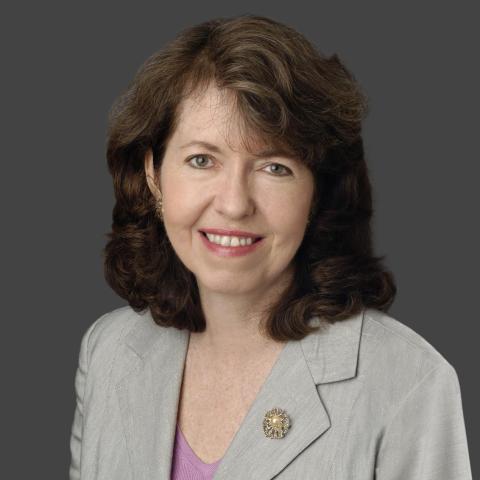Japanese Prime Minister Shinzo Abe's controversial visit last month to Yasukuni Shrine reignited memories in East Asia of imperial Japan's wartime atrocities. The shrine honors 2.5 million Japanese war dead, including some of the war criminals convicted by the International Military Tribunal for the Far East, aka Japan's Nuremberg.
It's an apt moment, then, for "A Curious Madness," Eric Jaffe's oddly absorbing story of the only one of the 28 indicted "Class A" Japanese war criminals to go free. Shumei Okawa was allowed to escape prosecution on the grounds that he was insane. But was he? More than 60 years later, suspicion lingers that he was faking it—that his bizarre behavior during the early stages of the trial was deliberate, his way of thumbing his nose at a victors' court whose authority he rejected.
Mr. Jaffe, a contributing writer for the Atlantic Cities website, deftly uses this mystery to frame the life stories of two men: Okawa and the U.S. Army psychiatrist who diagnosed him as mentally ill. The psychiatrist, Maj. Daniel Jaffe, was the author's grandfather.
"A Curious Madness" is structured as parallel biographies—a passage on Okawa's youth followed by one on Maj. Jaffe's early years, and so forth. In the hands of a lesser writer, this construct wouldn't work, but Mr. Jaffe pulls it off with skill and intelligence.
The book begins on May 3, 1946, in the opening days of the Tokyo trials. The 28 Japanese deemed most responsible for their country's aggression during World War II file into a courtroom. The star defendant is Hideki Tojo, prime minister at the time of Japan's bombing of Pearl Harbor and a general in the imperial army. Okawa was the only civilian on trial.
Though he never held a position within the government, he was an influential writer and intellectual who, in Mr. Jaffe's words, "was viewed as the brain trust of Japanese militarism—the mind that directed the country's might." Okawa believed that Japan had a divine mission to lead a unified Asia against the West. In Okawa's judgment, Mr. Jaffe writes, Asian countries would "accept Japanese leadership in their own best interests" and would be willing to "exchange Western imperialism for a kinder, more brotherly Asian guide."
In the courtroom on one of the trial's first days, Okawa behaved like a nutcase. He took off his shoes, rocked back and forth, started talking gibberish, and then leaned forward in his chair and slapped the bald head of Tojo, who was sitting in front of him. The episode was captured on film, and you can find it on the Internet. It's as weird as Mr. Jaffe's account suggests.
The book then goes back in time to examine Okawa's progression toward an Asia-first philosophy called "Asianism" and his belief that Japan was culturally superior to every other nation. Mr. Jaffe describes Okawa's mentorship of young military officers and his involvement in the 1932 assassination of a Japanese prime minister as part of a militarist faction's failed plot to overthrow the government. These chapters are enlivened by accounts of the author's visits to Okawa's hometown and interviews with scholars and others.
In keeping with modern sensibilities about tolerance—a virtue often invoked inappropriately today—Mr. Jaffe sometimes goes out of his way to avoid passing judgment on Okawa. It's true that Okawa dodged the tribunal's verdict, but surely he was more than a "suspect," to use the excruciatingly correct word favored by the author. That said, Mr. Jaffe expresses the view that Okawa would have been convicted had the judge not dismissed him from the proceedings because of his presumed insanity.
Only near the book's end does Mr. Jaffe reveal a key detail of his grandfather's diagnosis: that Okawa's insanity was the result of syphilis that had gone untreated decades earlier and now had reached the brain. Okawa underwent treatment and eventually recovered, but due to a combination of factors, including continuing doubts about his sanity, he still managed to evade trial. Okawa later expressed the view that the court was afraid he would point out "the faults of the Allied nations" on the stand and "treated me as a mad man just to silence me."
The sections on Mr. Jaffe's grandfather are of mixed interest. When the author strays into the realm of speculation, his musings are neither illuminating nor interesting. An imagined conversation among Jaffe relatives about the celebrity whom Maj. Jaffe may have treated as a psychiatrist after the war is especially dumb. Was the patient Jackie Kennedy? Marilyn Monroe? RFK? Who cares?
In contrast, the factual details that Mr. Jaffe provides on his grandfather's medical training and his work as a combat psychiatrist in the European theater are fascinating. They constitute a mini-history of the treatment of the mentally ill in the first half of the 20th century along with public attitudes toward mental illness.
Psychiatrists in World War II benefited from valuable lessons learned from the treatment of shell-shock victims in World War I. One lesson was that every soldier had a breaking point. Another was that many soldiers could be healed and returned to battle if they received swift attention. Maj. Jaffe was trained to "salvage" soldiers by providing them with a brief respite of sleep, sustenance and a sympathetic ear. Also interesting, and profoundly sad, is the story of Maj. Jaffe's mother, who battled demons so fierce that she murdered one of her children. She moved in and out of insane asylums for the rest of her life.
Not long after his psychiatric evaluation of Okawa, Maj. Jaffe shipped home, becoming a prominent psychoanalyst in Washington. In 1948, seven of the convicted Class A war criminals were hanged. Nine years later, Shumei Okawa died in his own bed of natural causes.


















